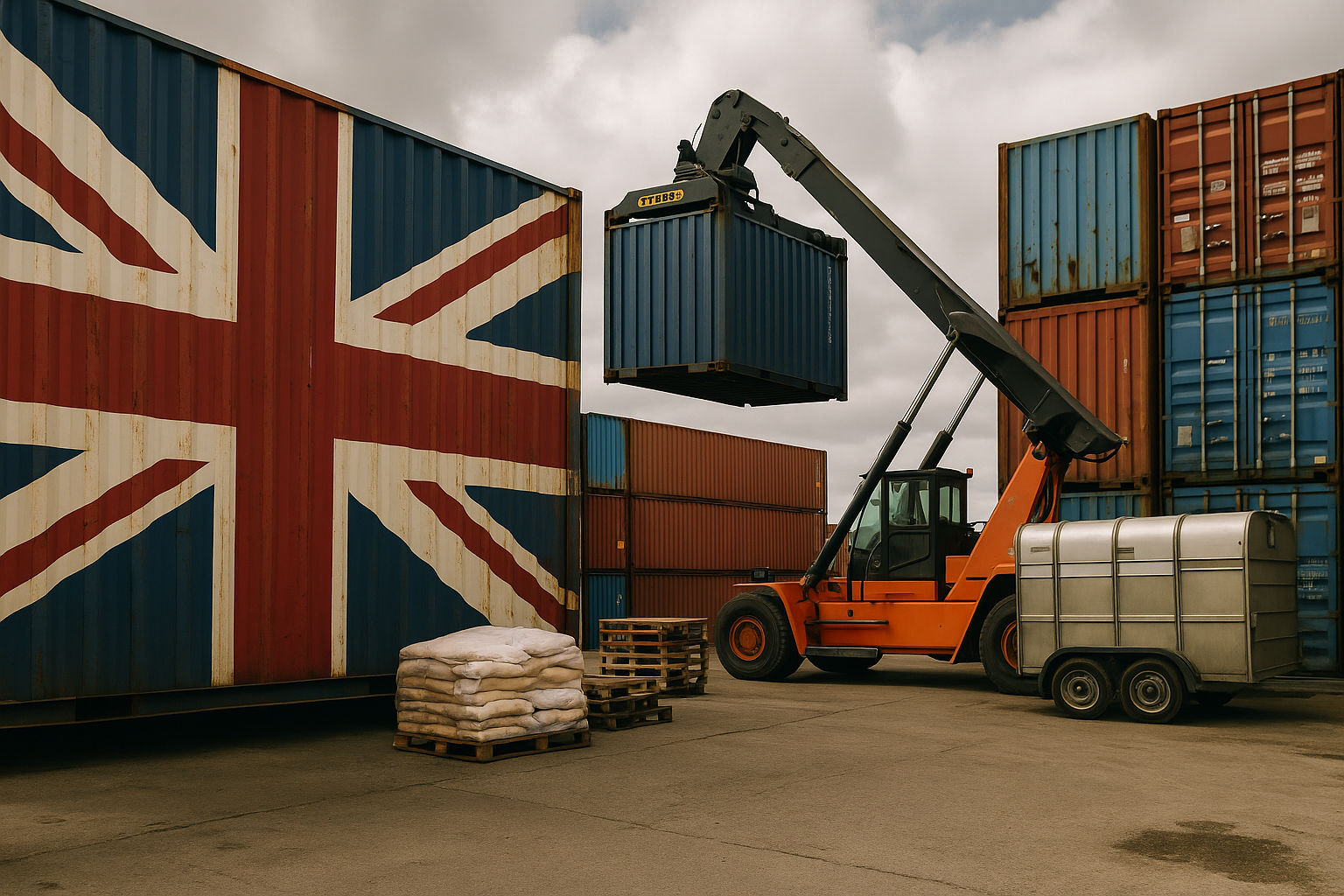UK–EU agri-food trade fragmented by Brexit
The analysis finds a substantial and persistent decline in the value, volume, and variety of UK agri-food exports to EU member states following the TCA. The contraction is not short-term or transitional, it reflects a structural rupture in trade integration. In the post-TCA period, UK exports to the EU of products like dairy, meat, fruits, and vegetables have fallen significantly, despite tariff-free access under the agreement.

- Country:
- United Kingdom
The United Kingdom’s departure from the European Union (EU) has delivered a permanent shock to bilateral agri-food trade, with losses in UK exports to the EU persisting years after Brexit and the introduction of the Trade and Cooperation Agreement (TCA). This is the conclusion of a new empirical analysis that warns of structural trade disintegration in the UK’s most regulation-sensitive sector.
The findings are detailed in a peer-reviewed study titled “Trade Disintegration and Agri‐Food Trade: United Kingdom Exit From EU”, authored by Jun Du, Oleksandr Shepotylo, and Yujie Shi, and published in The World Economy. Using product-level trade data and a difference-in-differences approach within a gravity model framework, the study assesses the real-world effects of Brexit on agri-food trade. The authors confirm that the TCA has not offset the negative trade effects caused by the UK’s exit from the single market, particularly for perishable goods like dairy and meat.
How did Brexit affect the UK's agri-food exports to the EU?
The analysis finds a substantial and persistent decline in the value, volume, and variety of UK agri-food exports to EU member states following the TCA. The contraction is not short-term or transitional, it reflects a structural rupture in trade integration. In the post-TCA period, UK exports to the EU of products like dairy, meat, fruits, and vegetables have fallen significantly, despite tariff-free access under the agreement.
The researchers attribute the losses to a combination of newly imposed non-tariff barriers. These include sanitary and phytosanitary (SPS) checks, customs declarations, rule-of-origin certification requirements, and delays at borders, all of which have increased transaction costs. Exporters now face additional compliance burdens, making UK goods less competitive in European markets.
Furthermore, EU importers have restructured their sourcing strategies in response. With the UK no longer operating under the EU’s regulatory framework, EU buyers have shifted toward intra-EU suppliers who offer predictable delivery, seamless documentation, and full regulatory alignment. This supplier substitution has eroded the UK’s market share even in long-established product categories.
The loss of product variety is also significant. The study finds that not only are fewer goods being exported to the EU, but the diversity of exported items has also diminished. This suggests a retrenchment of trade engagement that may be difficult to reverse, even if future agreements address some of the current frictions.
Why is the agri-food sector especially vulnerable to disintegration?
The authors underscore that agri-food trade is more sensitive to trade barriers than other sectors due to its reliance on time-sensitive logistics, stringent regulatory oversight, and cross-border supply chains. These characteristics make it acutely vulnerable to customs delays and regulatory divergence.
Unlike durable goods, many agri-food products are perishable, and disruptions in supply chain timelines lead directly to spoilage, inventory loss, and missed delivery windows. Moreover, the EU’s SPS regime enforces strict health and safety standards for food products, with little flexibility for third-country exporters. Following Brexit, the UK became a third country without the regulatory privileges previously afforded under single market membership.
The study finds that UK exporters face higher rejection risks, additional paperwork, and inspection fees. Even when goods are allowed entry, delivery delays can undermine relationships with EU wholesalers and retailers who prioritize supply chain reliability. These frictions are especially damaging in high-value markets such as cheese, chilled meat, and fresh seafood—products where the UK had previously built strong reputations.
Another point raised by the research is the UK’s limited success in redirecting exports to non-EU markets. Despite increased trade promotion efforts targeting the US, Asia, and Australia, new destinations have not fully compensated for the losses in the EU. Constraints include consumer preference mismatches, longer shipping times, and incompatibility with foreign SPS rules.
What policy responses are necessary to mitigate trade damage?
The study outlines several recommendations to address the long-term damage to UK agri-food trade competitiveness. First, it calls for new mutual recognition agreements with the EU, particularly in food safety and animal health standards. Restoring regulatory convergence could lower non-tariff barriers and restore partial market access.
Second, the authors urge increased investment in border infrastructure, including digital customs systems, cold-chain logistics, and pre-clearance hubs. These tools could reduce wait times and minimize spoilage risks, improving the reliability of UK exports to both the EU and other destinations.
Third, the paper recommends a targeted diversification strategy. Rather than attempting to replace EU trade volume with blanket outreach to global markets, UK policymakers should focus on niche products with higher demand elasticity and quality differentiation. Sectors such as premium organic goods, artisanal beverages, and sustainable packaging present viable export opportunities in North America and East Asia.
The study also highlights the importance of domestic resilience. With food import patterns also shifting and the UK more exposed to global price shocks, strengthening local production and storage capabilities becomes essential. Additionally, resolving Brexit-induced labor shortages, particularly in harvesting and food processing, will be key to stabilizing the sector.
The research also stresses the need for robust trade data monitoring. Real-time insights into trade flows, export performance, and compliance costs can help both policymakers and businesses adapt more quickly to emerging bottlenecks.
- FIRST PUBLISHED IN:
- Devdiscourse










